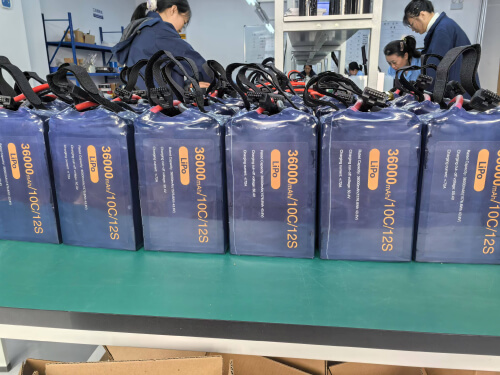Understanding Solid-State Batteries
What Are Solid-State Batteries?
Solid-state batteries are a new kind of power storage. They swap out liquid or gel electrolytes in regular lithium-ion batteries for solid ones. This design boosts how well they work. It also makes them safer and longer-lasting. Unlike older batteries that use liquid to move ions between electrodes, these use solid stuff like ceramics or polymers. That means no leaks. They stay steady even in tough conditions.
How Solid-State Batteries Differ from Lithium-Ion Batteries
The big difference is the electrolyte. Lithium-ion batteries have liquid electrolytes. Solid-state ones use a solid material. This brings lots of perks. They hold more energy. They’re less likely to overheat or catch fire. They last longer too. Plus, they can handle higher voltages safely. That makes them more efficient and powerful.
Key Components of Solid-State Batteries
Solid-state batteries have three main parts:
Anode: Often lithium metal or similar materials. It maximizes energy storage.
Cathode: Usually made of layered oxides or phosphates. These hold ions during charge and discharge.
Solid Electrolyte: The star of the show. It moves ions while keeping the battery strong and safe.
Advantages of Solid-State Battery Technology
Higher Energy Density and Extended Lifespan
Solid-state batteries pack a punch compared to lithium-ion ones. They store more energy in less space. For example, Taixing Shengya Electronic Technology Co., Ltd offers batteries with energy density up to 340wh/kg. That means longer power for smaller devices. It’s perfect for electric vehicles or portable gear.
They also last longer. They can go through more charge cycles without losing much capacity. Shengya Electronics’ batteries show this off. They handle 800 to 1000 cycles with ease.
Faster Charging Capabilities
These batteries charge up quick. They can take higher voltages without trouble. Regular lithium-ion batteries might get too hot when charged fast. Solid electrolytes stay cool and stable. This is a big win for electric vehicles. Shorter charge times make driving easier and more convenient.
Improved Safety Features Compared to Traditional Batteries
Safety matters a lot with batteries. Old-school lithium-ion ones can be risky. They might overheat or even explode because of liquid electrolytes. That’s called thermal runaway. Solid-state batteries dodge this. Their solid electrolytes don’t burn. They’re steady even if damaged. Some Shengya Electronics products can take punctures without catching fire or blowing up.
Enhanced Performance Across Temperature Ranges
Regular lithium-ion batteries struggle with extreme weather. Cold slows them down. Heat can wreck them. Solid-state batteries do better. They work well in freezing or scorching conditions. Their tough design keeps them reliable no matter the environment.
Challenges in the Development of Solid-State Batteries
Manufacturing and Scalability Issues
Making solid-state batteries isn’t easy. It needs special tools and tight control over materials. Regular lithium-ion batteries have simple, well-known production steps. These are trickier. Solid electrolytes and lithium metal anodes need precise handling. Scaling up for big markets adds more hurdles. Keeping every battery consistent and high-quality during mass production is tough. That slows down their use in everyday products.
Cost Barriers in Material Production
Solid-state batteries cost a lot to make. The materials are pricey. Solid electrolytes, like ceramics or polymers, take complex steps to create. Lithium metal anodes bump up the price too. They help with energy density but aren’t cheap. High-purity materials and strict standards add even more expense. This makes it hard to use these batteries in affordable gadgets or budget electric vehicles.
Technical Limitations in Ionic Conductivity and Dendrite Formation
There are tech challenges too. Ionic conductivity is one. It’s how well ions move through the solid electrolyte. Liquid electrolytes do this great. Solids struggle to keep up. Another issue is dendrites. When using lithium metal anodes, these needle-like growths can form during charging. They might poke through the electrolyte. That can cause short circuits or wreck the battery. Fixing these problems needs more research and new ideas.
Potential Applications of Solid-State Batteries
Use in Electric Vehicles (EVs) for Enhanced Range and Safety
Solid-state batteries could change electric vehicles big time. They tackle range worries and safety risks. Their high energy density means more power in less space. That gives EVs longer drives on one charge. It makes them more appealing to buyers. Non-flammable solid electrolytes cut the chance of fires. That’s a huge safety boost compared to liquid-based batteries. Fast charging seals the deal. It lets drivers hit the road quicker.
Applications in Drones and Unmanned Aerial Vehicles (UAVs)
Drones and UAVs get a lift from solid-state batteries. Their high energy density and light weight are perfect. Drones can fly longer. They can carry heavier gear too. Safety matters in tough jobs like firefighting or rescue missions. Solid-state tech delivers reliability. Shengya Electronics makes custom battery packs for this. They boost flight time and keep things safe.
Role in Consumer Electronics and Wearable Devices
Solid-state batteries fit great in gadgets like phones, laptops, and wearables. They’re small and safe. They work well in hot or cold conditions. That means your devices stay dependable. Fast charging is a bonus too. People want quick power-ups. As costs drop, expect to see these batteries in more everyday tech.
FAQs About Solid-State Batteries
What are the main challenges facing solid-state battery development?
High costs to make them. Trouble scaling up production. Tech issues like ionic conductivity.
How do solid-state batteries enhance safety compared to lithium-ion options?
They use solid electrolytes that don’t burn. No leaks or thermal runaway risks.
Are there any commercial applications for solid-state batteries today?
Yes. Companies like Taixing Shengya Electronic Technology Co., Ltd have advanced battery packs with this tech.
Why are solid-state batteries considered ideal for electric vehicles?
More energy density for longer trips. Quick charging. Better safety features.
Can drones benefit from using solid-state batteries?
Totally. They fly longer. Carry more weight. Stay reliable for important tasks.
For custom high-energy-density battery packs for drones or robotics, reach out to Taixing Shengya Electronic Technology Co., Ltd today!










